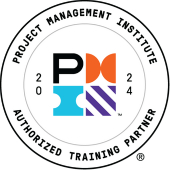3P Method of Conflict Management: Pause, Pivot, Positive
By Kerry Wekelo
Remember your first team assignment in school and the challenges of working with such a diverse group of people—from the slacker to the overachiever, the complainer to the model communicator? Now you are the project manager for your company, and you’re running into the same kinds of challenges, only the stakes are higher and ongoing for everyone on your team. As project manager, your goal is to provide an environment that brings the best out of everyone, but you keep running into conflict because of your team’s different styles of working. Fortunately, there are some simple tools you can use to handle conflict successfully. One of these is the 3P Method: Pause to Pivot to Positive.
These three basic steps can encourage open communication among everyone involved and reduce negative emotions, allowing you and your team to move forward together. Here is an overview of how it works:
1) Pause. Having a negative outlook is natural. This goes back to the fight-or-flight mindset that many people adapt while arguing. By taking a moment, you give yourself and the other person to think before they react. This helps to diffuse negative emotions and tension.
2) Pivot. Negative feelings tend to react to and build off one another, creating a
downward spiral. To fix the issue, we need to pivot out of the cycle and identify what went wrong. Try to think of things from a third-person point of view. This can help you gain a better understanding of the situation at hand.
3) Positive. Even if the situation had negative consequences, try to identify the positive things that came out of the disagreement. Voice the positive outcomes of the situation. This will help eliminate any residual negative feelings. When there are issues in your team, remember that every problem is an opportunity to make positive change. Nobody wants to mess up, yet it happens; we are all human and we all make mistakes.
When your team knows that you care and will support them even in hard times, you will have their loyalty and their willingness to resolve key issues in the future.

